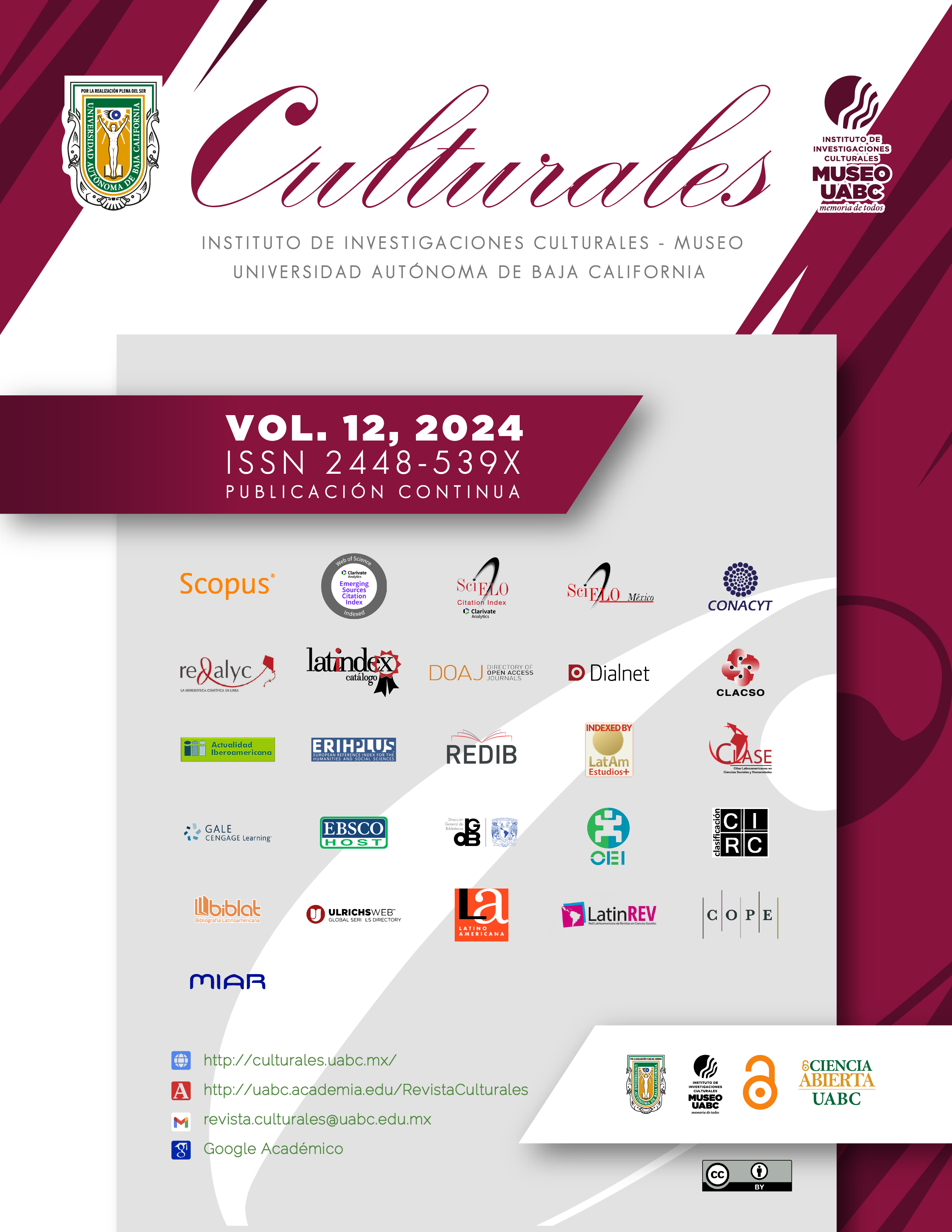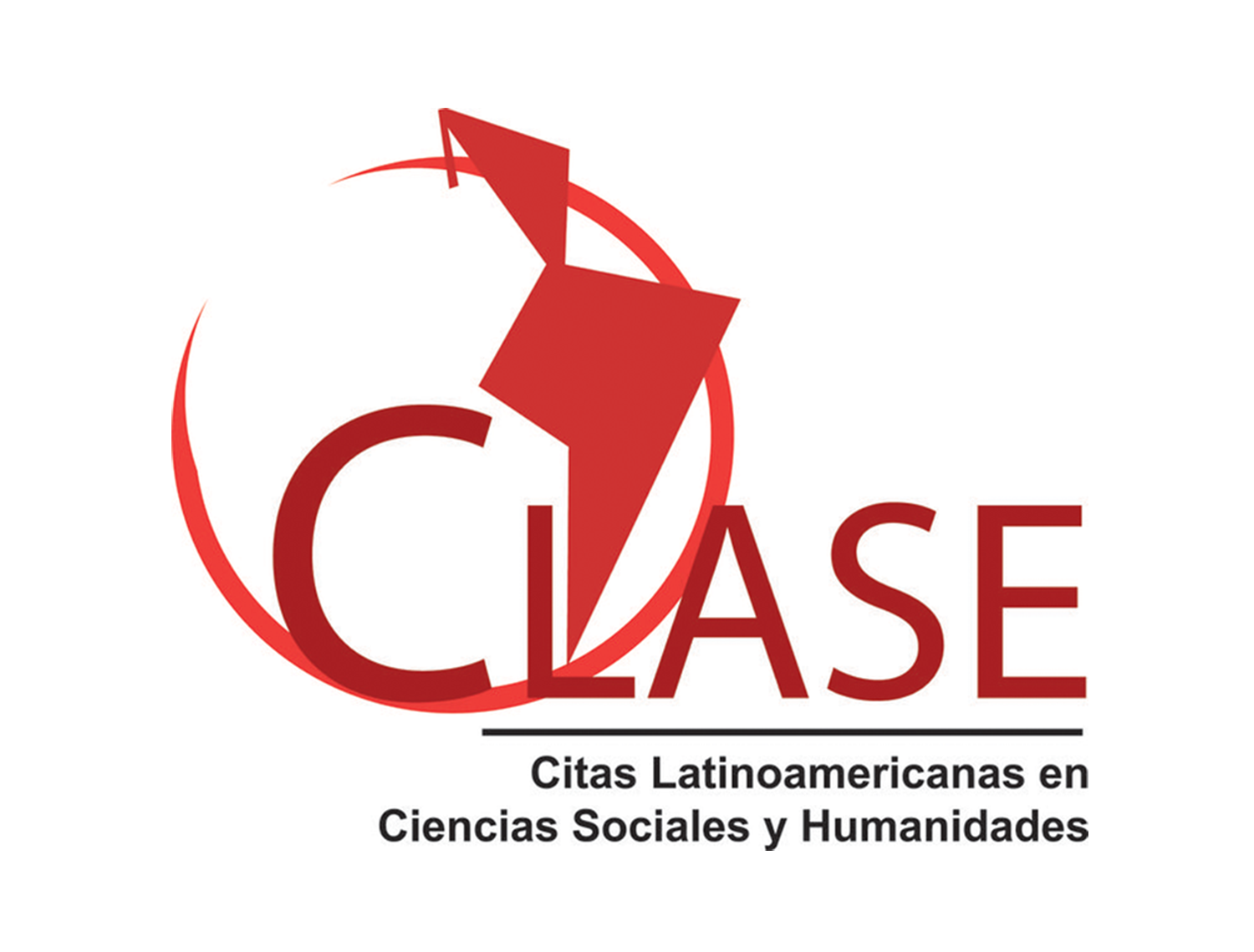Formas de partir: primeras aspirantes alemanas a la congregación Catequistas de Boroa (Araucanía, Chile, 1932-1934)
DOI:
https://doi.org/10.22234/recu.20241201.e853Keywords:
Viaje, discurso, religión, mujeres, escrituraAbstract
Este trabajo analiza las estrategias discursivas de las primeras aspirantes alemanas que entre 1932 y 1934 postularon a ser misioneras de la Congregación Catequistas de Boroa en la Araucanía. Desde un enfoque de género y mediante la sistematización y cruce de archivos históricos (convocatorias, cartas, autobiografías, cuestionarios), analizaremos la interpelación codificada entre sacerdotes capuchinos y aspirantes. Focalizándonos en el análisis de las cartas de las aspirantes, sostendremos que el excepcionalismo y las tretas del débil constituyeron estrategias paradójicas de mujeres cuyos deseos de reconocimiento y autonomía se legitimaron a través de la vocación civilizadora de paganas mapuche.
Downloads
References
Ahmed, S. (2017). La política afectiva del miedo. In La política cultural de las emociones (pp. 105-132). Universidad Nacional Autónoma de México.
Azócar, A. (2014). Así son… así somos. Discurso fotográfico de capuchinos y salesianos en la Araucanía y la Patagonia. Ediciones Universidad de la Frontera.
De la Fuente, P. (2023). Ñimin y escritura: encuentros y desencuentros entre niñas y mujeres mapuche con misioneras anglicanas en la Misión araucana de SAMS (1895-1929) Pontificia Universidad Católica de Chile. Santiago.
Donoso, A. (2008). Educación y nación al sur de la frontera: organizaciones mapuche en el umbral de nuestra contemporaneidad, 1880-1930. Pehuén, RIL.
Dorlin, E. (2003). Les putes sont des hommes comme les autres. Raisons Politiques, 3(11), 117-132.
Egaña, L.; Nuñez, I. & Salinas, C. (2003). La educación primaria en Chile, 1860-1930 : una aventura de niñas y maestras. LOM.
Haggis, J. (1998). ’A heart that has felt the love of god and longs for others to know it’: conventions of gender, tensions of self and constructions of difference in offering to be a lady missionary. Women’s History Review, 7(2), 171-193.
Illanes, M. (2007). Cuerpo y sangre de la política La construcción histórica de las visitadoras sociales (1887-1940). LOM.
Lavrin, A. (1995). Women, Feminism and Social Change in Argentina, Chile and Uruguay 1890-1940. University of Nebraska Press.
Ludmer, J. (1985). Tretas del débil. In P. González & E. Ortega (Eds.), La sartén por el mango. Encuentro de escritoras latinoamericanas (pp. 47-54). Ediciones El Huracán.
McClintock, A. (1993). Family feuds: gender, nationalism and the family. Feminist Review, 44, 61-80.
Menard, A. & Pavez, J. (2007). Mapuches y anglicanos. Vestigios fotográficos de la Misión Araucana de Kepe, 1896-1908. Ocho libros.
Montecino, S. & Foerster, R. (1988). Organizaciones, Lideres y Contiendas Mapuches (1900-1970). CEM.
Noggler, A. (1972). Cuatrocientos años de Misión entre los Araucanos. Editorial San Francisco.
Riot-Sarcey, M. & Varikas, E. (1988). Réflexions sur la notion d’exceptionnalité. Les Cahiers Du GRIF, 37-38, 77-89.
Rivière, J. (1929). Womanliness as a mascarade. International Journal of Psychoanalysis, X, 303-313.
Rojo, G. (2001). Diez tesis sobre la crítica. LOM.
Rosa, E. (1996). Sor Juana and Gabriela Mistral: Locations and Locutions of the Saintly Woman. Chasqui, 25(2), 89-103.
Semple, R. (2003). Missionary women : gender, professionalism, and the Victorian idea of Christian mission. Boydell Press.
Scott, J. (2012). Las mujeres y los derechos del hombre : feminismo y sufragio en Francia, 1789-1944. Siglo Veintiuno Editores.
Serrano, S. (1995). De escuelas indígenas sin pueblos a pueblos sin escuelas indígenas: la educación en la Araucanía en el siglo XIX. Historia, 29, 423-474.
Serrano, S., Ponce de León, M., & Rengifo, F. (2018). Historia de la Educación en Chile, Tomo II: La Educación nacional (1880-1930). Taurus.
Stoler, A. (2004). Affective States. In D. Nugent & J. Vincent (Eds.), A Companion to the Anthropology of Politics (pp. 4-20). Blackwell Publishing.
Stornig, K. (2013). Sisters Crossing Boundaries: German Missionary Nuns in Colonial Togo and New Guinea, 1897-1960. Vandenhoeck & Ruprecht.
Umbach, J. (2017). Missionarische Weiblichkeit und Identitätskonstruktion. Die Chile-Mission der Menzinger Kreuzschwestern im frühen 20. Jahrhundert. Peter Lang Edition.
Vera, A. (2016). La superioridad moral de la mujer: sobre la norma racializada de la femineidad en Chile. Historia y Política, 36, 211-240.
Vera, A. & Sáez, C. (2022). Animales monstruosos y viriles: una lectura feminista del archivo de la repugnancia a las cobradoras de tranvía (Santiago, fines XIX-comienzos XX). Cadernos Pagu, 65. https://www.scielo.br/j/cpa/a/QYVzC7rJ7gf347cYd4zYL6k/
Vera, A. & Valderrama-Cayumán, A. (2017). Teología feminista en Chile: actores, prácticas, discursos políticos. Cadernos Pagu, 50. https://doi.org/https://doi.org/10.1590/18094449201700500012
Yeager, G. (2005). Religion, Gender Ideology, and the Training of Female Public Elementary School Teachers in Nineteenth Century Chile. The Americas, 62(2), 209-243.
Yuval-Davis, N. & Anthias, F. (1989). Women-Nation-State. Macmillan.
Archives
Historical Archive of the Diocese of Villarrica (AHDV).
File “First candidates to the Catechists of Boroa 1932-1934”
Sister Superior Engelmann. (1932, August 19). Kempten. AHDV.
Sister Superior Leonarda Welsh, Sisters of the Good Shepherd. (1932, August 16). Münich. AHDV
Father Räglau. (1933, September 3). Parish of Baden-Baden. AHDV.
Pastor K. Arnow. (1932, September 10). Reichenbach. AHDV.
Parish office of Saarbrücken. (1932, June 21). AHDV.
Father Caedilian. (1933, June 24). Burghausen. AHDV.
Letter from Father Eduard to Guido Beck. (1932, August 12). AHDV.
Letter from Guido Beck to Father Eduard. (1932, September 29). AHDV.
Letter from Father Eduard to “his Reverence”. (1934, July 20). AHDV.
Lina Koch. (1933, September 10). Baden-Baden. AHDV.
Elisabeth Schneider. (1932, June 14). Saarbrücken. AHDV.
Maria Renninger. (1933, June 28). Mabmberg. AHDV.
Gisela Eckstein. (1933, June 14). Mammersreuth. AHDV.
Father Johannes. (1932, August 23). Cleve. AHDV.
Father Feuerbach. (1932, August 29). Parish office of Mainz. AHDV.
Letter from Father Eduard to ‘His Excellency’. (1933, May 4). Altötting. AHDV.
Letter from Father Eduard to Guido Beck. (1934, August 20). AHDV.
Father Suitbertus to Father Eduard. (1933, September 28). Mainz. AHDV.
Letter from Klara Mergler to ‘His Excellency’. (1934, August 5). Gernsheim. AHDV.
Margareta Maier. (1934, July 29). Bamberg. AHDV.
Maria Renninger. (1933, June 28). Mabmberg. AHDV.
Franziska Schmid. (1932, December 29). Öettingen. AHDV.
Ottilie Winter Maier. (1934, September 14). Untermühlbach. AHDV.
Archive of the Mother House of the Catechist Sisters of Boroa (ACB).
“Date of birth and religious profession of the missionary catechist sisters”. (n.d.). ACB.
Ewige Anbetung and Altöttinger Franziskus Kalender magazines, Library of the university of Eichstätt-Ingolstadt.
Downloads
Published
How to Cite
Issue
Section
License
Copyright (c) 2024 María Antonieta Vera Gajardo, Camila Stipo, Rosario Fernández Ossandón

This work is licensed under a Creative Commons Attribution 4.0 International License.
Culturales journal allows you to share, copy and redistribute the material in any medium or format; adapt, remix, transform, and build upon the material for any purpose, including commercially, by properly crediting the work and providing a link to the license indicating whether changes have been made.
Culturales journal is licensed under the Creative Commons Attribution 4.0 International License (CC BY 4.0)























